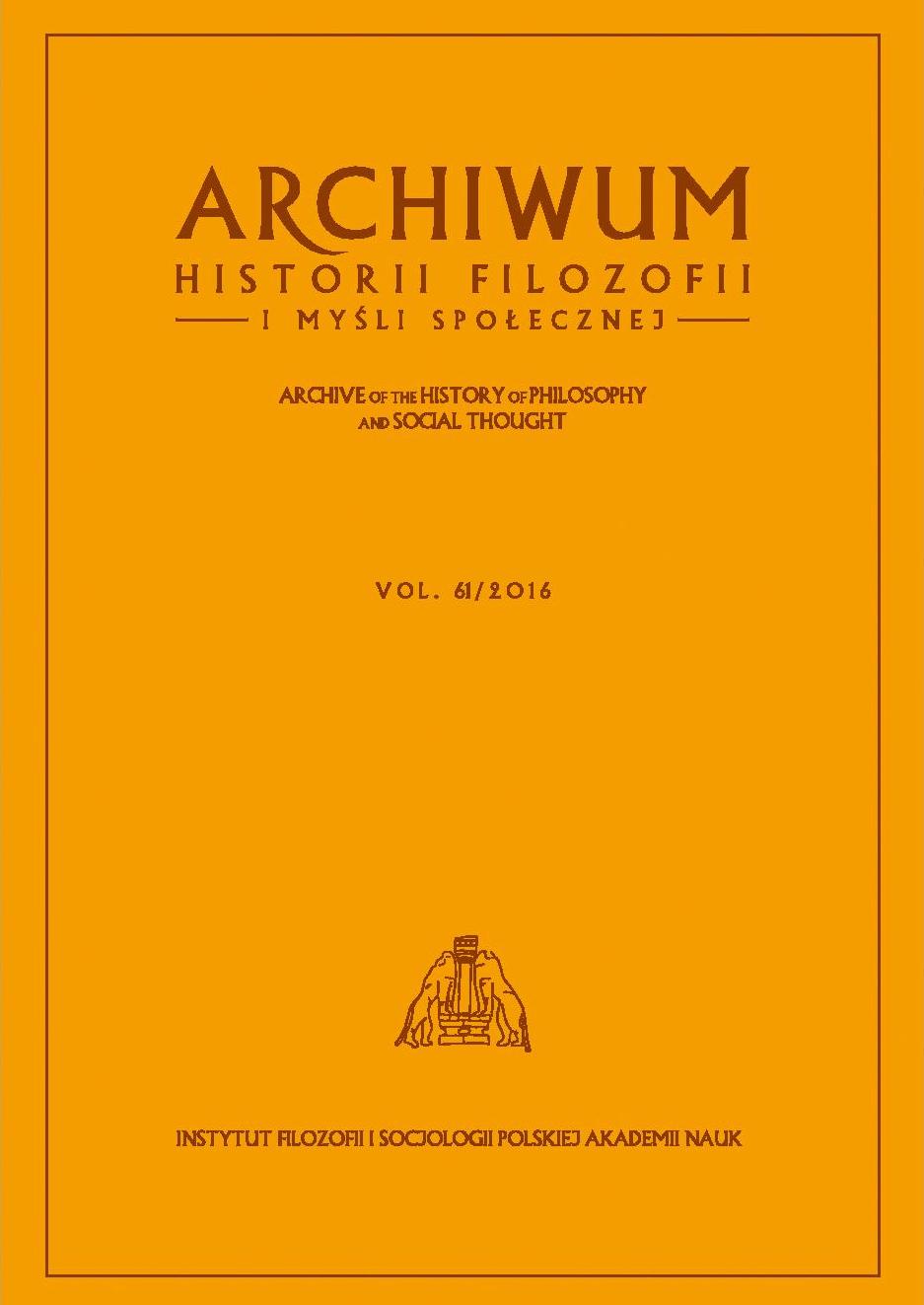Accidentalism in Aristotle? Poetics and Ontology
Accidentalism in Aristotle? Poetics and Ontology
Author(s): Walter SeitterSubject(s): Philosophy, Special Branches of Philosophy, Ancient Philosphy
Published by: Instytut Filozofii i Socjologii Polskiej Akademii Nauk
Keywords: Tragedy; action; plot; agent-causality; event-causality; deus ex machina; network; artificial animal
Summary/Abstract: My reading of Aristotle’s Poetics focuses on what Aristotle calls the “mythos” of the tragedy. By “mythos” he doesn’t understand the content of the Greek tragedies: family-related stories of Orestes and Electra, of Oedipus and Antigone ... but the precise scenario constructed by the poet, id est the “plot”. And Aristotle postulates that in the plot of a well conceived tragedy the causal role not only of gods, but also of human actors should be reduced. Th e strong unity of the tragic action (praxis) should result in a close connection of the partial situations, events, turning points. In this sense the substantial agents should be ousted by the “accidents” (Aristotle calls them “pragmata”). Th is artifi cially unifi ed plot should be the “soul” of the tragedy – thus becoming a souled entity, just as a fascinating animal: a new substance.
Journal: Archiwum Historii Filozofii i Myśli Społecznej
- Issue Year: 61/2016
- Issue No: 61
- Page Range: 297-307
- Page Count: 11
- Language: English

